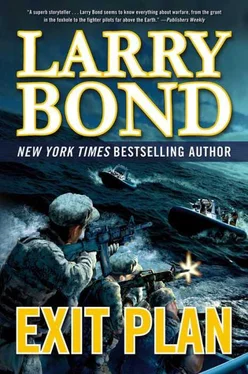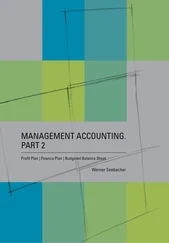Or could they? Fifty-five years after the first atomic bomb was built, knowing the design and bringing it into existence were two different things. And while Iran was a large country, it was not very wealthy — despite its petroleum resources — and the world was arrayed against them.
Moradi expected that. It was part of, almost required by, the Revolution and what it represented. Iran stood alone, and wanted to stand alone. She had been invaded, occupied, and manipulated by other nations since Darius had been beaten by Alexander the Great. She was surrounded by ethnic enemies like Iraq and Saudi Arabia, or historic ones like Russia, and was now ringed by American bases in Turkey, Iraq, Afghanistan, and Pakistan.
He could feel the pressure as a physical thing, a wall trapping them, or a net being drawn tighter. America talked openly of “containing” Iran, using the Cold War tactic of encircling an enemy nation and strangling it. Sanctions, spies, alliances, wars, all were part of an American plan to destroy the Revolution and replace it with another one of their puppets. He sometimes imagined what it would be like if Iran could trade freely, healing the wounds they still carried from the war with Iraq. What would Iran look like then? What would the Islamic Republic be able to do?
Nuclear weapons would elevate Iran among the world’s nations, demanding respect, commanding leadership in the region and the Islamic world. Pakistan had the bomb, but the fractured and crippled government could not use it except as a counter to India’s weapons. Iran could use it to break the sanctions, a demonstration of national will in the face of any opposition… If they could ever get it built.
Moradi watched the meeting break up. Nadali had them motivated and almost rushing out the door, eager to get back to work. Moham led the charge, and Moradi and his staff found themselves alone in the auditorium. The colonel started organizing the trip back to their headquarters in Isfahan. There was nothing more to do here, but Moradi interrupted him. “Colonel, I’d like to speak to Dr. Sabet privately. Have Major Rahim set up security again.” Rahim had been listening, and with a nod from Nadali, rushed off.
Moradi and the elderly scientist took their time, and when they finally returned to Nadali’s temporary office, the sentries were posted, and Rahim reported the area was secure. Nadali ushered the two men in, Moradi following the older man. The general had said a “private meeting,” so Nadali stepped out, closing the door behind him.
Someone had left two cups of tea on the desk, and Sabet picked one up, sitting across from the empty desk. It was a subtle acknowledgment of his position. Moradi had been given charge of the nuclear program, but Sabet was the guiding intellect. The general respected the scientist’s experience and achievements, his piety, and his dedication to the Revolution, but he lacked Moradi’s sense of urgency, and to Moradi’s mind, pushing was how the big jobs got done.
The general sat down behind the desk, and sipped his tea quietly, almost afraid to ask the next question. “What is the news from up north?”
Sabet said, “No more bad news; a little good news. They have almost finished debugging the simulation. It can model the thermal and hydraulic performance of a malfunctioning reactor.”
Moradi almost laughed. “We have one of those, Doctor.” Near Khondab, about ninety kilometers southwest of Arak, Iran had built a nuclear reactor, following the plans provided by the Pakistani nuclear scientist. It used natural uranium fuel with no enrichment, which Iran could produce. Transformed by the nuclear reaction, the spent fuel contained about 1 % plutonium by weight, most of which was Pu-239, which could be extracted and used to make a nuclear bomb. It was the second doorway into the nuclear clubhouse, bypassing the complex, time-consuming, and so far unattainable uranium enrichment process. All one had to do was build a specialized nuclear reactor.
Unlike the civilian and very public pressurized light-water reactor at Bushehr, built to a Russian design, the “IR-40” at Arak used heavy water to moderate the nuclear reaction. Heavy water paired two deuterium atoms, an isotope of hydrogen with an extra neutron, with an oxygen atom. It looked like regular water, and while it wasn’t as efficient as regular water at slowing down neutrons, heavy water didn’t absorb neutrons as readily as light water and this enabled a reactor to use natural, unenriched uranium as fuel.
The IR-40 reactor was entirely an Iranian enterprise. The Iranian scientists had a good theoretical understanding of nuclear reactor design, and they had been running small research reactors for decades. Using the plans provided by Pakistan, it should have been a straightforward task. However, the transition from theory to practice is rarely a smooth road. And in the case of the IR-40, the road was more of a goat path.
For some reason that they didn’t understand, the IR-40’s main cooling system wasn’t working properly. In several of the narrow coolant channels, the water was starting to boil, reducing the flow of water over the adjacent fuel rods, which then started to warp and crack. Moradi knew it had to do with the design of the core, but he depended on Sabet and his people at the facility to understand and fix it. That was not only frustrating, but was thus far unproductive.
The core of the IR-40 had to be redesigned, but how? Their basic understanding of reactor core design had to be improved, and quickly. For Moradi, everything had to be done quickly.
Sabet saw his expression. “General, I truly believe computer simulation is our best option. You can’t use trial and error with nuclear reactors. Mistakes could be deadly, even worse than what happened here, and their effects last for decades. Modeling the core’s behavior in a computer will improve our understanding, as well as enable us to explore different core designs. Such techniques are used in Europe and America all the time.”
But Iran had not been able to acquire the software, again because of sanctions. Theft, espionage, and black-market purchases had provided the software, but then it had to be documented, adapted, and finally completely understood. Otherwise they would have no idea whether the computer’s output was a bug or a correct result. That process had taken almost a year.
Intellectually, Moradi could accept Sabet’s explanation. Simulation was the logical course, but it reduced the struggle to develop a plutonium bomb to a roomful of computer geeks arguing over a printout. Moving ones and zeroes around on an invisible battlefield made it impossible for the general to see any progress, or any way to improve the situation.
Moradi’s frustration was clear in his tone. “We are pouring resources into both the enrichment process and the heavy-water reactor because it gives us two paths to a nuclear capability.” He sighed heavily. “Both are effectively stalled.”
“Moving forward slowly,” Sabet corrected quietly. “Sometimes it’s difficult to see, General, but even a failure can be viewed as progress. I’ve been involved in projects that had even worse setbacks. You have to take the long view.”
Moradi’s answer had an edge to it. “We don’t have an infinite amount of time, Doctor. The West, and now even Russia are aligned against us. They work to undermine not only this program, but also our government and our economy. They are hurting us, and I’m not sure how much more damage we can stand.”
Sabet nodded, agreeing with Moradi, but the general pressed his point. “Doctor, you don’t understand. The government can issue all the press releases it wants, but the sanctions do have an effect. And it’s getting worse. The situation is not static, nor is it in our favor.”
Читать дальше












